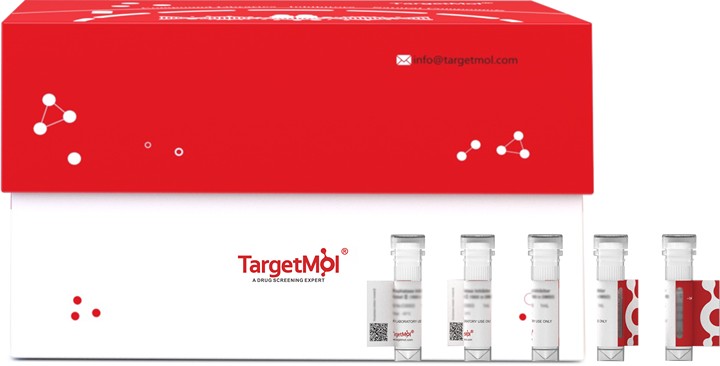Shopping Cart
- Remove All
 Your shopping cart is currently empty
Your shopping cart is currently empty

Neprilysin/CD10 Protein, Human, Recombinant, Biotinylated is expressed in HEK293 Cells. The accession number is P08473.

| Pack Size | Price | Availability | Quantity |
|---|---|---|---|
| 20 μg | $588 | Backorder | |
| 100 μg | $1,380 | Backorder |
| Biological Activity | Activity testing is in progress. It is theoretically active, but we cannot guarantee it. If you require protein activity, we recommend choosing the eukaryotic expression version first. |
| Description | Neprilysin/CD10 Protein, Human, Recombinant, Biotinylated is expressed in HEK293 Cells. The accession number is P08473. |
| Species | Human |
| Expression System | HEK293 Cells |
| Tag | Tag Free |
| Accession Number | P08473 |
| Synonyms | SFE,SCA43,NEP,EPN,CMT2T,CD10,CALLA |
| Construction | A DNA sequence encoding the Human MME (NP_000893.2) (Tyr52-Trp750) was expressed. The purified protein was biotinylated in vitro. |
| Protein Purity | ≥ 95% as determined by SDS-PAGE. |
| Molecular Weight | 79.84 kDa (predicted); 84.6 kDa (reducing contition) |
| Endotoxin | Please contact us for more information. |
| Formulation | Lyophilized from sterile PBS, pH 7.4. Please contact us for any concerns or special requirements. Normally 5 % - 8 % trehalose, mannitol and 0.01% Tween 80 are added as protectants before lyophilization. Please refer to the specific buffer information in the hardcopy of datasheet or the lot-specific COA. |
| Reconstitution | Please refer to the lot-specific COA. |
| Stability & Storage | It is recommended to store recombinant proteins at -20°C to -80°C for future use. Lyophilized powders can be stably stored for over 12 months, while liquid products can be stored for 6-12 months at -80°C. For reconstituted protein solutions, the solution can be stored at -20°C to -80°C for at least 3 months. Please avoid multiple freeze-thaw cycles and store products in aliquots. |
| Shipping | In general, Lyophilized powders are shipping with blue ice. |
| Research Background | The cluster of differentiation (CD) system is commonly used as cell markers in Immunophenotyping. Different kinds of cells in the immune system can be identified through the surface CD molecules associating with the immune function of the cell. There are more than 320 CD unique clusters and subclusters have been identified. Some of the CD molecules serve as receptors or ligands important to the cell through initiating a signal cascade which then alters the behavior of the cell. Some CD proteins do not take part in the cell signal process but have other functions such as cell adhesion. The cluster of differentiation 10 (CD10), also known as Neprilysin and neutral endopeptidase, is a member of the CD system. CD10 is a zinc-dependent metalloprotease enzyme that had the function to degrade some small secreted peptides such as the amyloid beta-peptide. It exists as a membrane-bound protein and has a high concentration in kidney and lung tissues. Mutations in the CD10 gene can induce the familial forms of Alzheimer's disease, providing strong evidence for the protein's association with the Alzheimer's disease process. CD10 is also associated with other biochemical processes. |

Copyright © 2015-2025 TargetMol Chemicals Inc. All Rights Reserved.